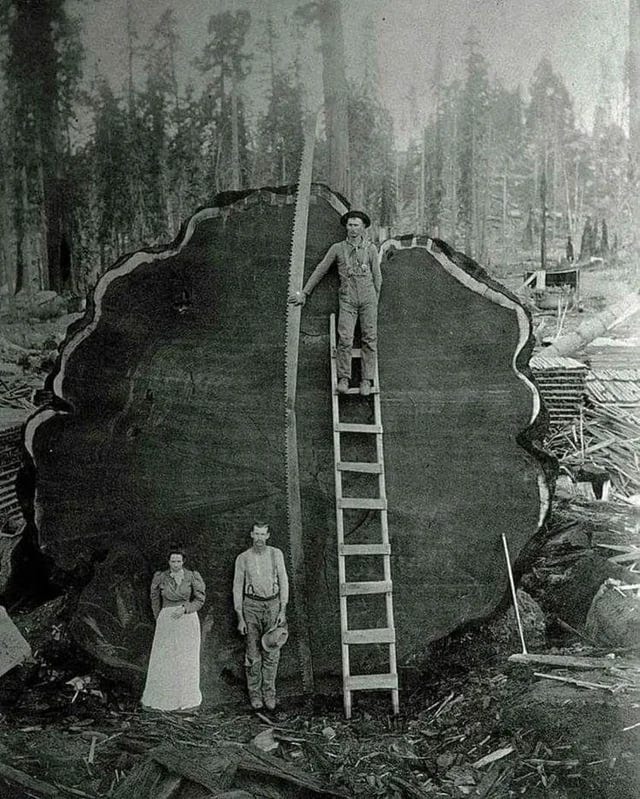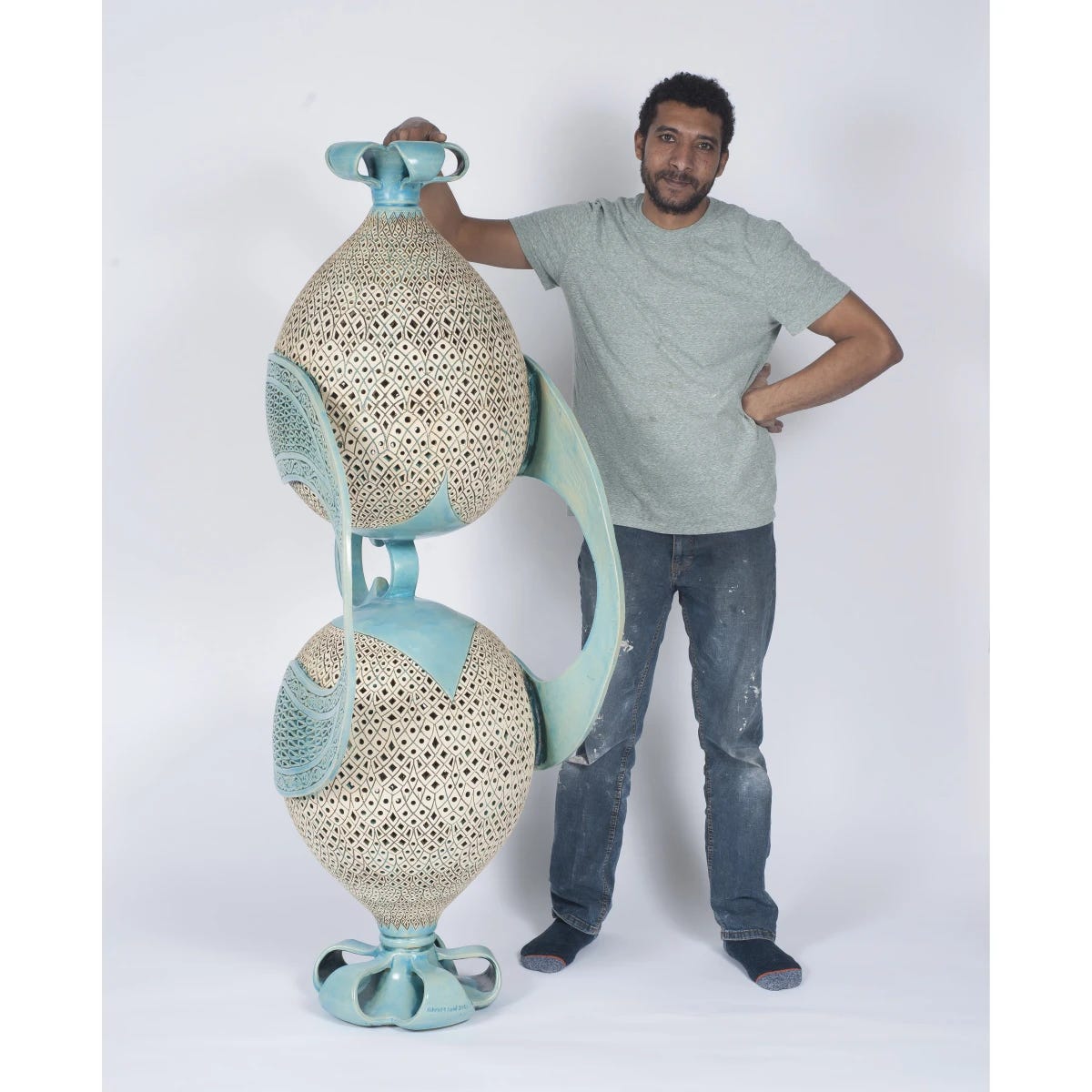37. Invest only in what's already obsolete
In other words, invest in what will never go obsolete
The greatest truths are the simplest, and so are the greatest men.
— Augustus Hare
Who wants the cutting edge? What shall we cut?
One of the pervasive myths, not only in the Western world but now worldwide, is that technology will save us and that it's important to be on the cutting edge. For some reason, it’s increasingly urgent that we all take advantage of the latest opportunity—or at least pay attention to what’s ever-new. Unfortunately, our obsession with the cutting edge isn’t good for us.
It saddens me how much we live in a polarized era. Rather than love, spaciously accept, learn from, and live amongst each other, we believe ourselves surrounded by either enemies or allies, with nothing in between. There's no room for growth in a polarized society. We are forced forward with no time for what’s essential.
Advancement along a cutting edge creates division—the ever-emergent “new” is being sliced up and divvied out—and only from the cutting edge can a person have the freedom to choose one's destiny amidst a newly-forked path.
New developments force society into choices, and this creates tesselations and crossroads. What was grey becomes either black or white. The emergence of fast food and supermarket franchises engenders counter movements: slow food, buy local, grow your own. The emergence of the new thing reminds us of what we have to lose.
Everything downstream of the action on the cutting edge has already been decided. Do you want social media? Well, you're getting it anyway. The cutting edge is certainly where the money is, even if it's not always where the value creation comes from.
There’s no way to win in all domains. To avoid becoming obsolete, should we pursue the latest developments in wellness, in tech, finance, health care, education, agriculture, energy, or something else?
My strategy is to pay increasing attention to the cutting edge while investing in what appears to be obsolete.
Notice what’s important but choose the essential
First off, what do we mean by obsolete? A prime example of something obsolete is meditation. For someone allied with what’s novel and “optimized,” it's so completely impractical that it's a non-starter. Yet, my experience has shown me that meditation is absolutely essential. How curious, then, that the fabric of society seems constructed in such a way that utterly deprioritizes it.
In the years ahead, as companies invest more heavily into advanced AI, writing manually will almost certainly be regarded just as obsolete as learning calligraphy. But choosing to write, to sit down and start flowing, will continue to reap immense rewards regardless of what else happens in the world.
For me, the fact of writing's obsolescence actually shines a light on what was most valuable about it the whole time—not just the finished product but the alchemy of the creative process—what it can do for you by engaging in the process.
This is typically why people come to me as a writing coach rather than someone who has developed a secret formula or a system for guaranteeing a bestseller. People tend to work with me because they want to alchemize something and shift their identity with respect to writing.
For my many years of writing, what continues to captivate me is how powerful it is to maximize inner success. There are plenty of growth gurus out there, and I’m not immune from the siren song of “bigger,” “better,” and “more,” but I continue to come home to the love of actually doing the thing.
I think the example applies to anything creative, but if we take the example of writing, then what I believe is that writing something you love, something that lights you on fire, something that could only have emerged through the uncertainty and vulnerability and sincerity of the process—is far more likely to result in not only a successful book but one that is capable of contributing more to yourself and the world than you could ever realize.
That's what lights me up, and that’s what I always hope to impart to clients.
We’re all in this together, but we choose our own path
The topic of this weekly newsletter deals with the intersection of technology, independence, and creativity. Fundamentally, it’s a way of forming community amongst those who choose to make life creative, no matter the circumstances.
We're all in this together, even though things are increasingly weird out there. This realization leads some people to galactic-scale enterprises (Elon Musk), others to grandiose delusions of dubious ethical ramifications (Sam Altman), and nearly everyone else either to a life of trying to make it work within the system or opting out.
The rare soul can stand in their own light and shine something truly different. Recently I attended a workshop by Ibrahim Said, a master potter, and I see him as an example of this. He grew up in Egypt and worked as a potter, even as a child, in an area dedicated to producing pottery on a large scale since the 9th century. He grew up steeped in tradition, and he loves this tradition, yet he chose to move to the West, where continues to work as a potter. He sees himself as one carrying the tradition forward—and doing something new with it.
His work is amazing. I learned a lot simply by watching him work. Masters have a way of making things look effortless.
If you look at the above piece from the perspective of a technologist, you might wonder why, after all, he would choose ceramics as opposed to something more cutting-edge. Even metal, for example, in those same dimensions would not run the risk of collapsing under its weight. And perhaps a 3d printer could easily produce something like that with a few algorithms and a press of a button. That would be the way to go if it were just about the form. But that wouldn’t do much for the desire for mastery of materials.
I think mastery looks different for everyone. You don’t need to be the best X.
I'm staking my claim on what's obsolete. This is my treasure. The cutting edge may be important, but the obsolete is absolutely essential.
Over time, I've learned that people tend to regret when they invest in what's important but never when they invest in what's essential.
Do I want to be popular at cocktail parties or make my life a work of art?
If I had to choose, which do I want more? Do I want the Lambo and the private jet? Or do I want to be fully alive?




Thanks !